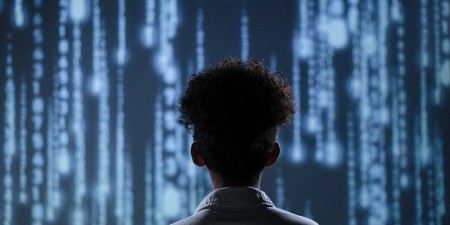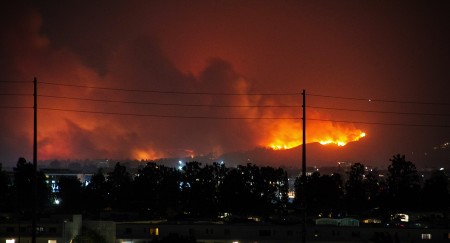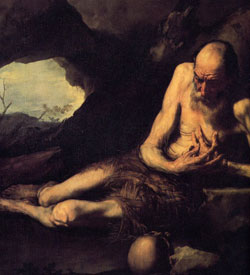 Dear readers, Catholic Online was de-platformed by Shopify for our pro-life beliefs. They shut down our Catholic Online, Catholic Online School, Prayer Candles, and Catholic Online Learning Resources—essential faith tools serving over 1.4 million students and millions of families worldwide. Our founders, now in their 70's, just gave their entire life savings to protect this mission. But fewer than 2% of readers donate. If everyone gave just $5, the cost of a coffee, we could rebuild stronger and keep Catholic education free for all. Stand with us in faith. Thank you. Help Now >
Dear readers, Catholic Online was de-platformed by Shopify for our pro-life beliefs. They shut down our Catholic Online, Catholic Online School, Prayer Candles, and Catholic Online Learning Resources—essential faith tools serving over 1.4 million students and millions of families worldwide. Our founders, now in their 70's, just gave their entire life savings to protect this mission. But fewer than 2% of readers donate. If everyone gave just $5, the cost of a coffee, we could rebuild stronger and keep Catholic education free for all. Stand with us in faith. Thank you. Help Now >
Pope Benedict XVI and Saint Bonaventure
FREE Catholic Classes
We find that Bonaventure was one of the two major intellectual influences on Pope Benedict's entire theological formation.
Highlights
ROME (Zenit.org) - Sometimes, there is more to a papal trip than meets the eye.
And that is the case with an upcoming trip of Benedict XVI to the small Italian town of Bagnoreggio, the birthplace of St. Bonaventure.
In two weeks, on Sept. 6, the Pope will go out of Rome to visit Bagnoreggio and Viterbo.
Viterbo, about 65 miles north of Rome, or just an hour by car, is well-known as the place where papal conclaves were born.
Until 1271, the gathering of cardinals for the election was not called a "conclave" ("con" meaning "with" and "clavis" meaning "a key") -- a closed meeting in a place locked "with a key."
After the death of Pope Clement IV in 1268, the cardinals meeting in Viterbo did not elect anyone for almost three years. Finally, the city officials locked all of them in a meeting room and gave them only bread and water to eat. Soon after, they elected Pope Gregory X. He then made it Church law that papal elections would take place in a conclave.
Benedict XVI will travel to Viterbo by helicopter from the papal summer villa at Castel Gandolfo, south of Rome.
But on his way home, he will stop in Bagnoreggio.
Why stop in such a little, seemingly unimportant town?
Because St. Bonaventure was born there in 1217.
Still, the Pope does not stop in the birthplace of every important saint. He would not have time to do so. So, why is he taking time to stop in Bonaventure's place of birth?
For the answer, we have to look into the Pope's own past, and there we find something rather interesting.
We find that Bonaventure was one of the two major intellectual influences on Pope Benedict's entire theological formation. (The other influence? St. Augustine.)
In Germany, scholars must write two dissertations. The first, as in the United States, is to receive a doctoral degree (a Ph.D.). The second, called the "Habilitationsschrift," is to qualify for a professorial post.
And the young Joseph Ratzinger, in the mid-1950s, wrote this second, postdoctoral thesis, on ... St. Bonaventure, and his understanding of history.
Press accounts will say that the Pope is "scheduled to venerate the 'holy arm' of the saint, which is kept in Bagnoreggio's cathedral" (the rest of St. Bonaventure's body is buried in France).
But Benedict is venerating also the deep wisdom of Bonaventure's vision of Christian revelation, and in so doing "making contact" with one of the central concerns of his own personal theological vision.
In this sense, if we can understand what Benedict learned from Bonaventure, we can understand more clearly what Benedict is trying to do now, in his pontificate, to lead the Church through this complicated period in history.
Benedict XVI himself gave us an idea of this intellectual background in a speech he gave to a group of scholars several years ago, before he was Pope.
He said this: "My doctoral dissertation was about the notion of the people of God in St. Augustine. ... Augustine was in dialogue with Roman ideology, especially after the occupation of Rome by the Goths in 410, and so it was very fascinating for me to see how in these different dialogues and cultures he defines the essence of the Christian religion. He saw Christian faith, not in continuity with earlier religions, but rather in continuity with philosophy as a victory of reason over superstition. ..."
So, we might argue that one major step in Ratzinger's own theological formation was to understand Christianity as "in continuity with philosophy" and as "a victory of reason over superstition."
Then Ratzinger took a second step. He studied Bonaventure.
"My postdoctoral work was about St. Bonaventure, a Franciscan theologian of the 13th century," Ratzinger continued. "I discovered an aspect of Bonaventure's theology not found in the previous literature, namely, his relation with the new idea of history conceived by Joachim of Fiore in the 12th century. Joachim saw history as progression from the period of the Father (a difficult time for human beings under the law), to a second period of history, that of the Son (with more freedom, more openness, more brotherhood), to a third period of history, the definitive period of history, the time of the Holy Spirit.
"According to Joachim, this was to be a time of universal reconciliation, reconciliation between east and west, between Christians and Jews, a time without the law (in the Pauline sense), a time of real brotherhood in the world.
"The interesting idea which I discovered was that a significant current among the Franciscans was convinced that St. Francis of Assisi and the Franciscan Order marked the beginning of this third period of history, and it was their ambition to actualize it; Bonaventure was in critical dialogue with this current."
So, we might argue, Ratzinger drew from Bonaventure a conception of human history as unfolding in a purposeful way, toward a specific goal, a time of deepened spiritual insight, an "age of the Holy Spirit."
Where classical philosophy spoke of the eternity of the world, and therefore of the cyclical "eternal return" of all reality, Bonaventure, following Joachim, condemned the concept of the eternity of the world, and defended the idea that history was a unique and purposeful unfolding of events which would never return, but which would come to a conclusion.
History had meaning.
History was related to, and oriented toward, meaning -- toward the Logos ... toward Christ.
This is not to say that Ratzinger -- or Bonaventure -- made any of the specific interpretations of Joachim his own. It is to say that Ratzinger, like Bonaventure, entered into "critical dialogue" with his overall conception -- that history had a shape and a meaning -- that he, like Bonaventure, took it quite seriously.
I have some personal insight into how seriously Ratzinger took these matters.
My own doctoral research was on the influence of the thought of Joachim on the early Franciscans.
When I first met Joseph Ratzinger, in the fall of 1984, I told him I was studying his book on St. Bonaventure with interest, and he replied: "Ah! You're the only one in Rome who has read that book of mine."
Then, later, he commented to me that the liberation theology of the Brazilian Franciscan Father Leonardo Boff was a "modern form" of Joachimism -- a desire to see within history a new ordering of human society.
So I am persuaded that Ratzinger took his research into Bonaventure quite seriously.
Ratzinger received his degree on Feb. 21, 1957, at nearly 30 years of age, but not without controversy.
The academic committee judging his work actually rejected the "critical" part of his thesis, so he was obliged to cut and edit it, and present the "historical" part only, centered on the analysis of the relation between St. Bonaventure and Joachim of Flora.
Ratzinger's professor, Michael Schmaus, thought Ratzinger's interpretation of Bonaventure's concept of revelation showed "a dangerous modernism that had to lead to the subjectivization of the concept of revelation," as Ratzinger himself recalls in his autobiography, Milestones: Memoirs 1927-1977. (Ratzinger felt, and still feels, that Schmaus's criticisms were not valid.)
What was it that Ratzinger found in Bonaventure that aroused such controversy?
For Ratzinger, Bonaventure's concept of revelation did not mean what it does for us today, that is, "all the revealed contents of the faith."
In Ratzinger's view, for Bonaventure, "revelation" always connoted the idea of action -- that is, revelation means the act by which God reveals himself, and not simply the result of this act.
Why is this important?
Ratzinger wrote in Milestones: "Because this is so, the concept of 'revelation' always implies a receiving subject: where there is no one to perceive 'revelation,' no re-vel-ation has occurred, because no veil has been removed. By definition, revelation requires a someone who apprehends it."
And why does this matter?
"These insights," Ratzinger continued, "gained through my reading of Bonaventure, were later on very important for me at the time of the conciliar discussion on revelation, Scripture, and tradition. Because, if Bonaventure is right, then revelation precedes Scripture and becomes deposited in Scripture but is not simply identical with it. This in turn means that revelation is always something greater than what is merely written down. And this again means that there can be no such thing as pure sola scriptura ["by Scripture alone"], because an essential element of Scripture is the Church as understanding subject, and with this the fundamental sense of tradition is already given."
In essence, what Ratzinger drew from Bonaventure modified and completed what he had drawn from Augustine.
If Augustine's thought emphasized the continuity of Christianity with classical philosophy, and the "reasonableness" of Christian faith over against pagan superstition, Bonaventure's thought emphasized the contrast between Christianity and classical philosophy, indeed, condemned the futility of classical philosophy, with its embrace of the concept of the eternity of the world and the "eternal return" of all things, because it lacked the revealed truth of a divine "actor."
Ratzinger suggested this in the forward to his work on Bonaventure: "Has not the 'Hellenization' of Christianity, which attempted to overcome the scandal of the particular by a blending of faith and metaphysics, led to a development in a false direction? Has it not created a static style of thought which cannot do justices to the dynamism of the biblical style?"
Even today, if we go to the last chapter of the Pope's recent book, "Jesus of Nazareth," we find the metaphysical terminology that presupposes an ontology of "person as relation" that I believe is the "golden thread" throughout all of Ratzinger's work, from his first book on Augustine, begun in 1953, through his "habilitation thesis" on Bonaventure (1956) to his recent Jesus of Nazareth (2007).
Ratzinger is saying that Christian revelation must always transcend reason, though it does not, and must not, contradict it.
When Benedict XVI visits Bagnoreggio, then, he will be, in a sense, returning to the source of his own deepest intellectual struggles, to the place where he came fully to understand the newness of the Christian faith, and how that faith, that revealed truth, is at one and the same time in harmony with, and at total opposition to, the "reason" which was the highest good of classical philosophy.
This makes the trip to Bagnoreggio far more than another papal trip; it is a trip into Ratzinger's own intellectual and spiritual past, and into the core of his intellectual and spiritual vision.
* * *
Robert Moynihan is founder and editor of the monthly magazine Inside the Vatican. He is the author of the book "Let God's Light Shine Forth: the Spiritual Vision of Pope Benedict XVI" (2005, Doubleday). Moynihan's blog can be found at www.insidethevatican.com. He can be reached at: editor@insidethevatican.com
Join the Movement
When you sign up below, you don't just join an email list - you're joining an entire movement for Free world class Catholic education.

-

-
Mysteries of the Rosary
-
St. Faustina Kowalska
-
Litany of the Blessed Virgin Mary
-
Saint of the Day for Wednesday, Oct 4th, 2023
-
Popular Saints
-
St. Francis of Assisi
-
Bible
-
Female / Women Saints
-
7 Morning Prayers you need to get your day started with God
-
Litany of the Blessed Virgin Mary
Vatican City Leads the Way in Ethical Artificial Intelligence Regulation
-

Rising from the Ashes: Southern California's Wildfire Tragedy Sparks Resilience and Hope in the ...
-

Catholic Medical Group Challenges Biden Administration Over Emergency Room Abortion Mandate
-
FDA Proposes New Front-Facing Nutrition Labels to Promote Healthier Choices
-
Introducing 'Journey with the Messiah' - A Revolutionary Way to Experience the Bible
Daily Catholic
 Daily Readings for Wednesday, January 15, 2025
Daily Readings for Wednesday, January 15, 2025 St. Paul the Hermit: Saint of the Day for Wednesday, January 15, 2025
St. Paul the Hermit: Saint of the Day for Wednesday, January 15, 2025 Prayer for a Blessing on the New Year: Prayer of the Day for Tuesday, December 31, 2024
Prayer for a Blessing on the New Year: Prayer of the Day for Tuesday, December 31, 2024- Daily Readings for Tuesday, January 14, 2025
- St. Felix of Nola: Saint of the Day for Tuesday, January 14, 2025
- St. Theresa of the Child Jesus: Prayer of the Day for Monday, December 30, 2024
![]()
Copyright 2024 Catholic Online. All materials contained on this site, whether written, audible or visual are the exclusive property of Catholic Online and are protected under U.S. and International copyright laws, © Copyright 2024 Catholic Online. Any unauthorized use, without prior written consent of Catholic Online is strictly forbidden and prohibited.
Catholic Online is a Project of Your Catholic Voice Foundation, a Not-for-Profit Corporation. Your Catholic Voice Foundation has been granted a recognition of tax exemption under Section 501(c)(3) of the Internal Revenue Code. Federal Tax Identification Number: 81-0596847. Your gift is tax-deductible as allowed by law.









 Daily Readings for Wednesday, January 15, 2025
Daily Readings for Wednesday, January 15, 2025 St. Paul the Hermit: Saint of the Day for Wednesday, January 15, 2025
St. Paul the Hermit: Saint of the Day for Wednesday, January 15, 2025 Prayer for a Blessing on the New Year: Prayer of the Day for Tuesday, December 31, 2024
Prayer for a Blessing on the New Year: Prayer of the Day for Tuesday, December 31, 2024

